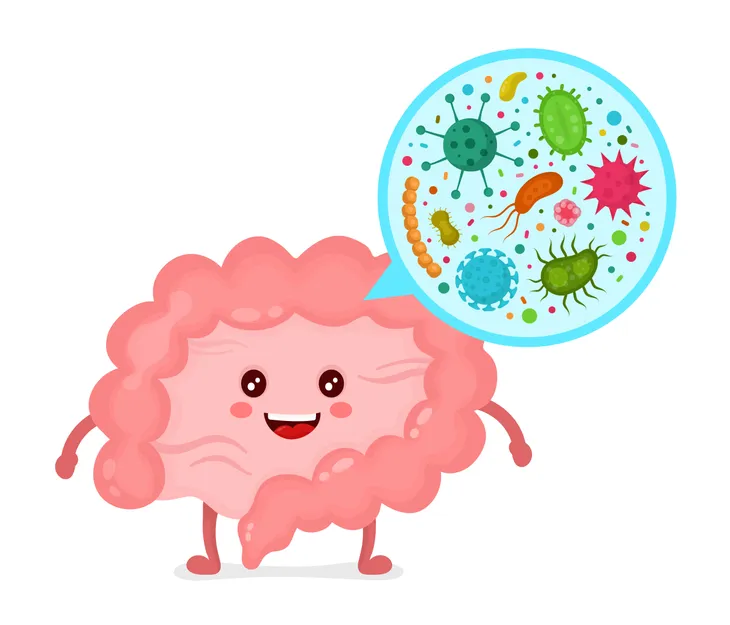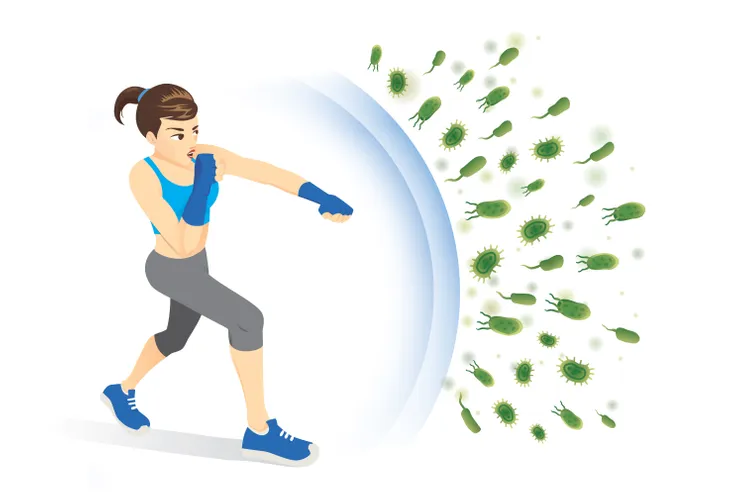Nothing beats biting into a fresh, juicy peach, but did you know that peaches benefit your skin, heart, and gut? Besides being delicious, peaches also have an impressive nutrient profile and can enhance your life in many ways!
Peaches are a part of the stone fruit family which also includes nectarines, plums, apricots, and cherries. This fuzzy fruit makes a delicious snack on its own but can also be added to a variety of dishes. In case you need another reason to enjoy a peach, here are 10 incredible health benefits of peaches!
Peaches Have an Impressive Nutrient Profile
First, we’d like to point out that peaches boast an impressive nutrient profile. Just one medium-sized peach contains 58 calories and offers 2-grams of fiber. They’re also chock full of antioxidants that are essential for protecting your body against aging and disease.
More specifically, peaches are a great source of vitamin A, C, E, and K. They’re also a great source of potassium, niacin, copper, manganese, and more. Just be sure to skip the canned peaches, and enjoy them fresh if you want to reap all of these wonderful benefits.
Heart Health
Fruits are an important part of a healthy diet, but eating fruit like peaches may also promote heart health too. In fact, peaches may help lower your risk for heart diseases like high blood pressure and cholesterol levels. According to Healthline, “Additional test-tube and animal studies found that peaches may reduce total and “bad” LDL cholesterol levels, as well as blood pressure and triglyceride levels.”
Cancer Prevention
Peaches are chock full of antioxidants like vitamin C. Antioxidants play an important role in neutralizing free radicals. This is important because a high concentration of free radicals can be dangerous for the body and may play a role in the development of cancer as well as other health conditions.
With this in mind, to help prevent cancer, make sure you consume enough vitamin C every day. Adult men need about 90-milligrams of vitamin C daily, while adult women need about 75-milligrams. One medium peach contains almost 10-milligrams of vitamin C.
Gut Health
Your gut health impacts your overall health and that’s why it’s important to take care of it. One way to take care of your gut health is to ensure you consume enough daily fiber. Consuming enough fiber can help prevent constipation and keep your gut working as it should. Thankfully peaches offer about 6 to 9-percent of the daily fiber your body needs.
Half of the fiber found in peaches is soluble fiber and the other half is insoluble. Soluble fiber is essential for feeding beneficial bacteria in your intestines which feed the cells in your gut. In contrast, insoluble fiber adds bulk to your stool. This helps food move through your gut and in turn, helps prevent constipation.
Skin Health
Skin is our largest organ and like all organs, we must take care of it. Peaches may help keep your skin healthy. This is due to their vitamin C and beta-carotene content. The body turns beta-carotene into vitamin A which can help protect your skin from sun damage and may even help create a natural glow.
Furthermore, vitamin C is essential for building collagen which improves your skin elasticity. Finally, peaches can also be hydrating for your skin as they’re 85-percent water.
Bone Health
Losing bone as we age is normal but too much bone loss can lead to osteoporosis. Thankfully, osteoporosis is not a normal part of aging and there are many things you can do to keep your bones strong and healthy. One thing you can do is ensure you’re eating plenty of good foods for bone health. This includes peaches.
Potassium is an important nutrient that may lower bone loss. Potassium may also help lower your blood pressure and help prevent kidney stones too. Healthy adults should aim to consume between 3,500 to 4,700-milligrams of potassium daily. Peaches contain about 285-milligrams of potassium which can definitely help you reach the recommended amount.
Eye Health
Peaches contain an antioxidant called beta-carotene. This nutrient is responsible for giving peaches their iconic golden-orange color. But that’s not all. WebMD explains, “When you eat it, your body turns it into vitamin A, which is key for healthy vision.”
Being proactive and taking care of your eye health early is essential for prevention. Vitamin A not only supports eye health, but it keeps other parts of your body such as your immune system working properly too.
Diabetes
Diabetics need to count their carbs to prevent blood sugar spikes. Thankfully peaches are a diabetic-friendly food!
One medium peach contains only 14-grams of carbohydrates. This means you can enjoy them without worrying about spiking your blood sugar. The fiber content in peaches can also help control blood sugar levels and keep you full for longer!
Help Manage Weight
Consuming fewer calories than your body needs will help you lose weight. The good news is that peaches contain fewer than 60 calories in just one medium-sized peach. This makes them a great snack to enjoy especially if you’re trying to manage your weight.
Peaches also don’t contain any saturated fats, cholesterol, or sodium and more than 85-percent of a peach is water. Furthermore, the fiber content found in peaches makes them a filling snack. This is because fiber takes longer to digest and in turn, helps you feel full for longer. For more food ideas, check out these fillings foods for weight loss.
Boost Immune System
The immune system has a very important job of protecting your body against disease. Supporting your immune system can help it function as it should. Peaches can help support your immune system in a couple of ways.
For starters, the vitamin C content in peaches can support your immune cells as they need this nutrient for function, production, and protection. Second, vitamin A in peaches can help form mucous membranes which help form strong protective barriers in your respiratory tract. This is essential for keeping germs out of your bloodstream.
How To Choose a Perfect Peach
It’s clear that peaches are full of health benefits and can be a great addition to your diet. But how do you pick the perfect peach to eat?
Peaches are members of the rose family so pay attention to smell. A sweet-smelling peach indicates it’s ripe! You’ll also know they’re ready to eat when they give a little after applying gentle pressure with your finger. If the peach is still firm, allow it to sit on the counter for a couple of days. Once the peach is ripe, place it in the fridge to keep it fresh for longer!














